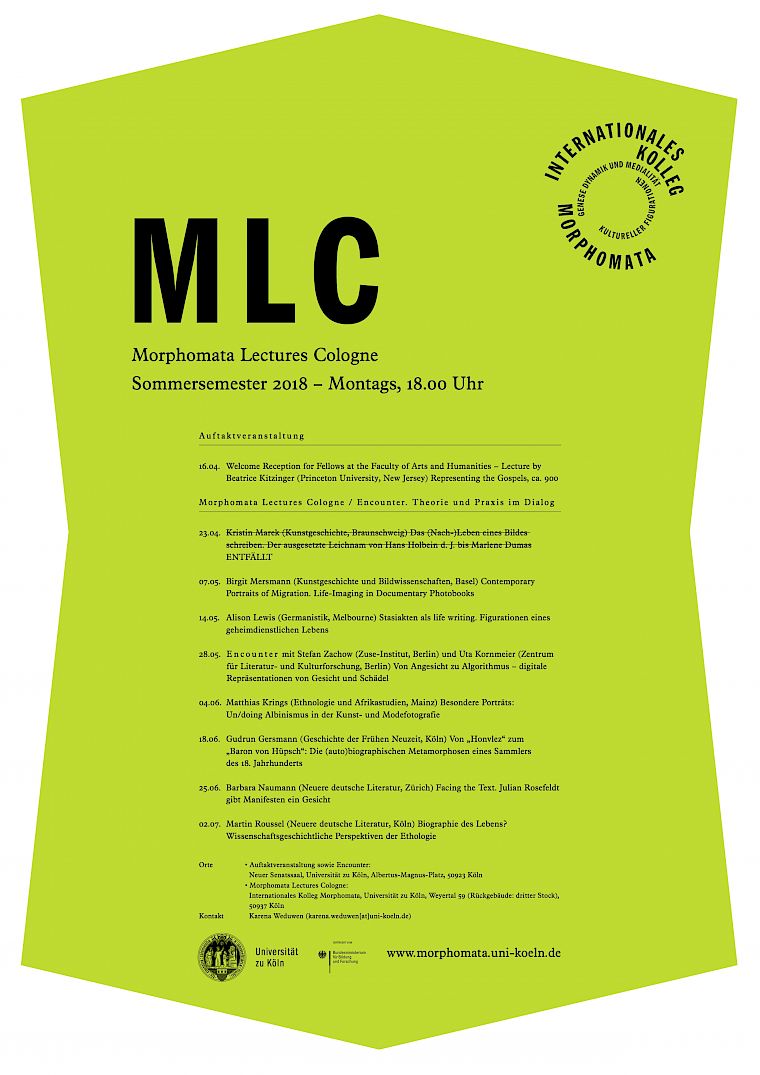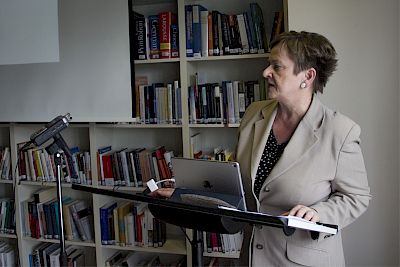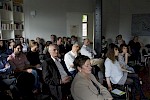The talk will be held in German.
From “Honvlez” to “Baron von Hüpsch”: The (auto)biographical metamorphoses of an eighteenth-century collector
Jean Guillaume Adolphe Fiacre Honvlez alias “Baron Adolf von Hüpsch” (1730 –1805) was an important eighteenth-century collector, doctor, enlightenment figure and polymath. Around 1760, Honvlez / von Hüpsch inaugurated a cabinet of natural and artistic curiosities in Cologne, which by the time of his death in 1805 had developed into an outstanding attraction for visitors from all around Europe: designed to be encyclopedic, the collection of the “Baron,” today preserved and displayed at the Hessisches Landesmuseum Darmstadt, ultimately contained around 15 000 objects, paintings, sculptures, fossils, minerals, ivory carvings, rare illuminated manuscripts as well as incunable editions and historical costumes. Beyond his varied activities, Honvlez / von Hüpsch is of interest for cultural history above all as the principal protagonist in a paradigmatic tale of shedding and adopting identities, of creating a self-image, acquiring a reputation, and professional ‘faking’ in the milieu of late eighteenth-century collecting. For, as the extant sources testify beyond any doubt, in the course of his life he repeatedly re-invented himself biographically: he used forged papers to adopt an aristocratic title and a noble family tree going back to ancient Rome, he used forged signatures to gain entry to academies and scholarly institutions, and finally even used a fictitious author and fictitious witnesses to have his own biography written as a hymn of praise to a “benefactor of humanity.” These behaviors secure von Hüpsch a place of his own alongside prominent ‘role models’ such as the “Lügenbaron” (‘fibbing baron’) Munchausen, or the Comte (or better: Comtesse) d'Éon, Europe’s first ever known transgender figure, in the “chronique scandaleuse” of the eighteenth century, in a long series of real and fictitious impostors and adventurers. In contrast to the older research, which interpreted the baron’s (auto)biographical ‘tricks’ as the expression of an essentially harmless vanity, this talk aims to show that the “baron’s” manipulations were the strategies of a social climber who used the unscrupulous methods sketched above to acquire the “symbolic capital” (Pierre Bourdieu) that he urgently needed in order to succeed in the collectors’ networks and reputation systems, as well as in those of the potential donors of objects. It was only by constructing a new identity that he was able to acquire the credibility he needed to expand his collections in the highly competitive collectors’ community of late eighteenth-century Cologne.
Respondent: Karl-Joachim Hölkeskamp (Köln)




